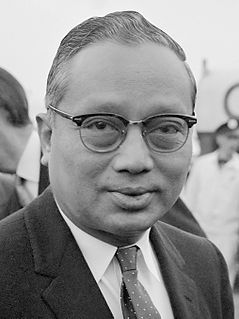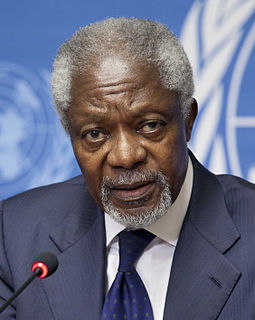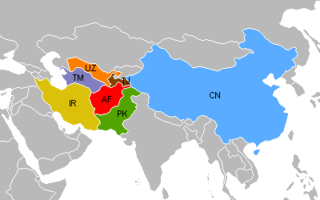 |
|---|
| This article is part of a series on the politics and government of Bahrain |
| Judiciary |
|
| Administrative divisions (governorates) |
|
Related topics |
An independence survey was held in the Persian Gulf island nation of Bahrain during 1970. The survey (sometimes referred to as "referendum" [1] ) took the form of a United Nations poll on whether islanders preferred independence or Iranian control. [2] The report of the Personal Representative of the Secretary-General on the consultation stated that "the overwhelming majority of the people of Bahrain wish to gain recognition of their identity in a full independent and sovereign State free to decide for itself its relations with other States". [3]

An independence referendum is a type of referendum in which the citizens of a territory decide whether the territory should become an independent sovereign state. An independence referendum that results in a vote for independence does not always ultimately result in independence.

Bahrain, officially the Kingdom of Bahrain, is an island country in the Persian Gulf. The sovereign state comprises a small archipelago centered around Bahrain Island, situated between the Qatar peninsula and the north eastern coast of Saudi Arabia, to which it is connected by the 25-kilometre (16 mi) King Fahd Causeway. Bahrain's population is 1,234,571, including 666,172 non-nationals. It is 765.3 square kilometres (295.5 sq mi) in size, making it the third-smallest nation in Asia after the Maldives and Singapore.

The United Nations (UN) is an intergovernmental organization that was tasked to maintain international peace and security, develop friendly relations among nations, achieve international co-operation and be a centre for harmonizing the actions of nations. The headquarters of the UN is in Manhattan, New York City, and is subject to extraterritoriality. Further main offices are situated in Geneva, Nairobi, and Vienna. The organization is financed by assessed and voluntary contributions from its member states. Its objectives include maintaining international peace and security, protecting human rights, delivering humanitarian aid, promoting sustainable development and upholding international law. The UN is the largest, most familiar, most internationally represented and most powerful intergovernmental organization in the world. In 24 October 1945, at the end of World War II, the organization was established with the aim of preventing future wars. At its founding, the UN had 51 member states; there are now 193. The UN is the successor of the ineffective League of Nations.
As a result, the United Nations Security Council unanimously passed Resolution 278 on 11 May 1970, [3] whilst in the same month Iran renounced its claim to the island. [4] The country subsequently became independent from the United Kingdom in August 1971. [2]

The United Nations Security Council (UNSC) is one of the six principal organs of the United Nations (UN), charged with the maintenance of international peace and security as well as accepting new members to the United Nations and approving any changes to its United Nations Charter. Its powers include the establishment of peacekeeping operations, the establishment of international sanctions, and the authorization of military action through Security Council resolutions; it is the only UN body with the authority to issue binding resolutions to member states. The Security Council held its first session on 17 January 1946.
United Nations Security Council Resolution 278, adopted unanimously on May 11, 1970, after statements from representatives of Iran and the United Kingdom, the Council endorsed the report of the Personal Representative of the Secretary-General and welcomed its conclusion, particularly the finding that "the overwhelming majority of the people of Bahrain wish to gain recognition of their identity in a full independent and sovereign State free to decide for itself its relations with other States".

The United Kingdom, officially the United Kingdom of Great Britain and Northern Ireland but more commonly known as the UK or Britain, is a sovereign country lying off the north-western coast of the European mainland. The United Kingdom includes the island of Great Britain, the north-eastern part of the island of Ireland and many smaller islands. Northern Ireland is the only part of the United Kingdom that shares a land border with another sovereign state—the Republic of Ireland. Apart from this land border, the United Kingdom is surrounded by the Atlantic Ocean, with the North Sea to the east, the English Channel to the south and the Celtic Sea to the south-west, giving it the 12th-longest coastline in the world. The Irish Sea lies between Great Britain and Ireland. With an area of 242,500 square kilometres (93,600 sq mi), the United Kingdom is the 78th-largest sovereign state in the world. It is also the 22nd-most populous country, with an estimated 66.0 million inhabitants in 2017.












